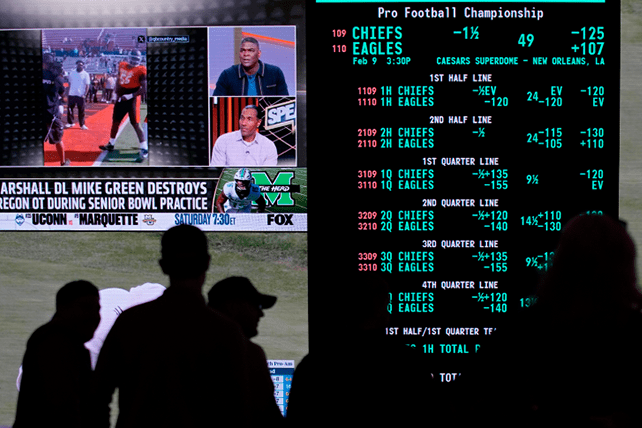A new national survey of sports fans by Sport Spectrum, a faith-based magazine, found that few people saw sports betting in a negative light. Only 23% said they felt negative about sports betting, while 43 percent said they felt positive about sports betting. A third (35%) felt neutral. A third (32%) said they had bet on sports. Twenty-seven percent said they know of someone who’d been negatively impacted by sports betting.
Few sports fans felt enthusiastic about betting being part of sports broadcasts, with 28% seeing that as positive, and 40% seeing it as negative. A third (32%) were neutral.
Andy Konigsmark, a Presbyterian minister from Colorado, is among those who think that sports gambling can be an enjoyable experience, if done within limits. Konigsmark said that his parents, conservative Christians who taught Sunday school, would take him to a dog track while on vacation and give him a few dollars. He said betting made watching the race more exciting — and having only $5 meant the stakes were low.
Konigsmark said these days, he occasionally places a bet on a sports-betting app.
“I could spend $20 a month on this — and that’s it,” he said. “It’s the same as going to the movies.”
If he were betting every day, or for larger amounts of money, that would be a problem, said Konigsmark. And he’d like to see fewer gambling ads on television and more limits on what people can bet. He also said faith leaders could do more to help their people think through the issue. This past fall, he wrote an online article entitled, “A Christian Minister’s Guide to Gambling with Wisdom,” to do just that.
Benjamin Watson, an author and college football commentator who played 16 years in the NFL, said the rise of sports gambling has had little effect on players so far. Fans have time to think about gambling and fantasy sports, he said, while players are focused on trying to win. While pro sports teams and broadcasters have ties to gaming companies, he said, for the most part players are isolated from those concerns.
“It doesn’t impact what we do on the field,” Watson said.
Watson, who played in a pair of Super Bowls — winning with the Patriots in 2004, losing with the same team in 2007 — said he’d learned to be grateful in both outcomes. Winning and losing is part of life, he said, adding that “losing is terrible.”
“God is in control,” he said. “My goal is to glorify Him, whether I win or whether I lose, there’s still growth that happens across the board.”
Watson, who comments on college games for the SEC Network and other sports media, said he does not bet on sports — in part because he hates to lose. And he has no interest in promoting gambling.
“There’s a lot of data that’s come out, a lot of studies, showing that gambling is not beneficial on a cultural or a wholesale level,” he said. Those studies, he said, show increases in bankruptcies and addictions. So much so that ads for sports betting often come with a warning about those addictions.
“I’d just rather stay away from it,” said Watson, who is known for his outspoken advocacy of social issues like racial reconciliation and his opposition to abortion. “I don’t see the benefit.”
This article originally appeared here.

